【Chainsaw Man】 A Compilation of Quotes by Character! In-depth introduction to Pochita Makima and other famous scenes and even stray words!
- Category : Anime
- Tags: 2022 Anime, anime, chainsaw man
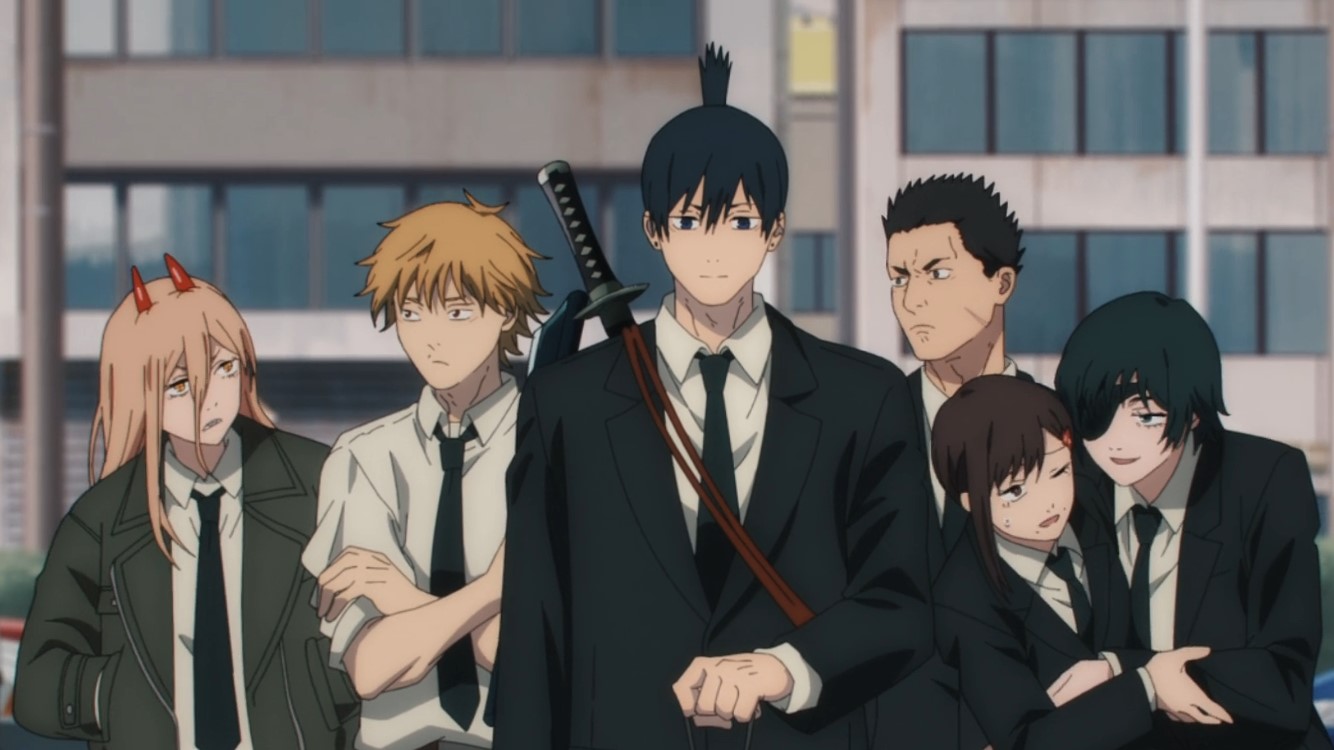
Tatsuki Fujimoto’s “Chainsaw Man” depicts devil hunters who hunt demons born of human fear. This popular horror action manga, which encompasses a development of continuing despair and sudden cynical gags, features many quotes with the Tatsuki Fujimoto verse. This article focuses on the first part of the manga and introduces quotes and superlatives by character. We will also introduce some quotes from the second part! This article contains spoilers up to December 2022, so please be careful when reading. Also, if you open this article on an external site other than ciatr, images and tables may not be displayed.
The Chainsaw Man” – Quotes and Scenes from Each Character!
So without further ado, here are some cool quotes and great scenes by character! In the latter half of the article, you will also find some stray words and quotes from the second part of the series. Let’s enjoy Tatsuya Kishida’s verses, which condense the rich worldview of “Chainsaw Man”!
Denji
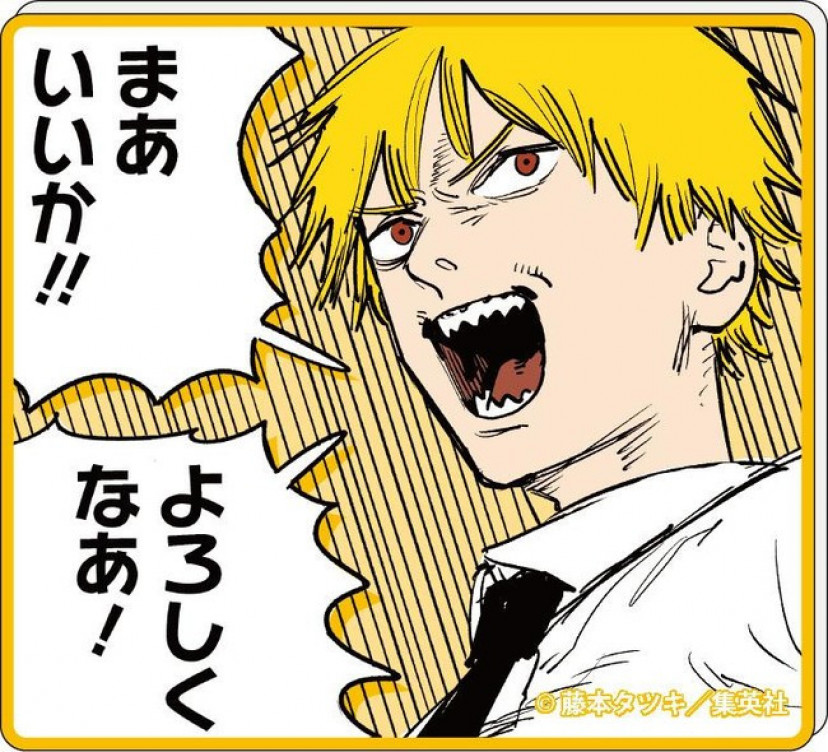
© Tatsuki Fujimoto / Shueisha, MAPPA
If you get in our way, you’ll die!” (Volume 1, Episode 1)
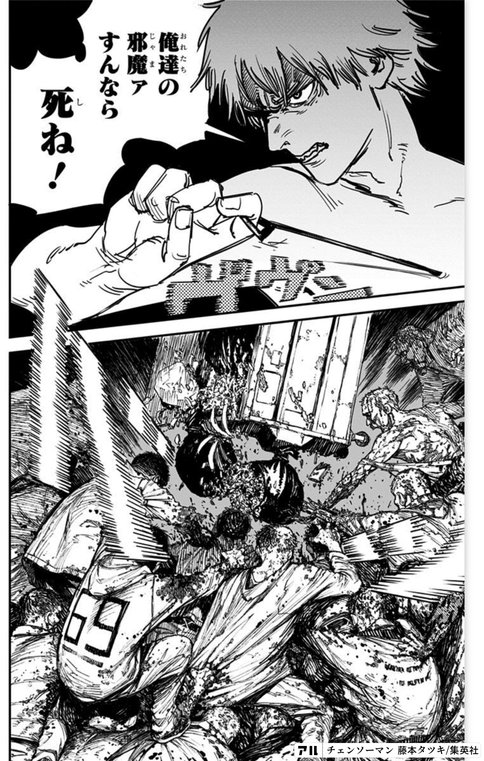
This is a line from the chainsaw man’s first battle. After prefacing his speech with “I guess we all dream, then it’s not a bad thing, not a bad thing, but…” he explodes in anger at those who have destroyed the modest life that he and Pochita dreamed of. The “we” that gives a sense of his bond with Pochita is the part that later becomes a foreshadowing of Makima’s line. However, it was cut in the animated version, causing controversy.
Then let’s have a dream battle! Let’s dream battle!” (Volume 2, Episode 10)
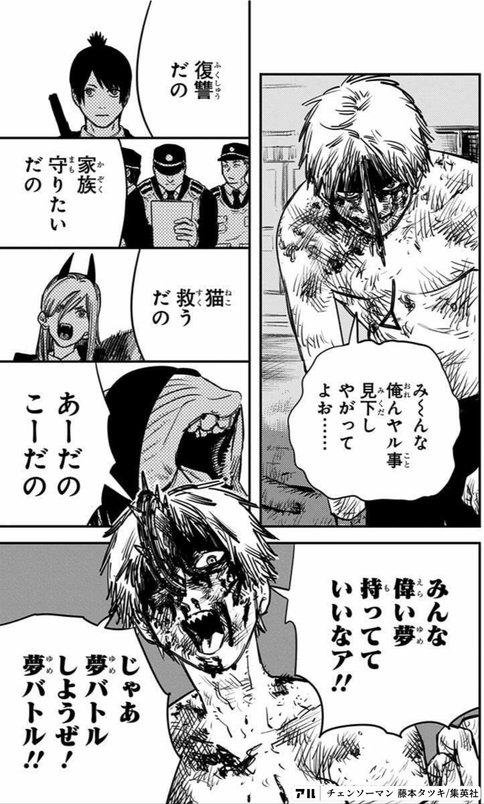
When Denji’s dream of squeezing her breasts is ridiculed, he says this line while being upset. This is followed by “If I kill you…! Your dream! I’m going to rub your breasts! and “dream battle” are full of Denji’s character.
“I’ve perfected the perpetual motion machine! Now the Nobel Prize is mine! (Vol. 3, Episode 19)
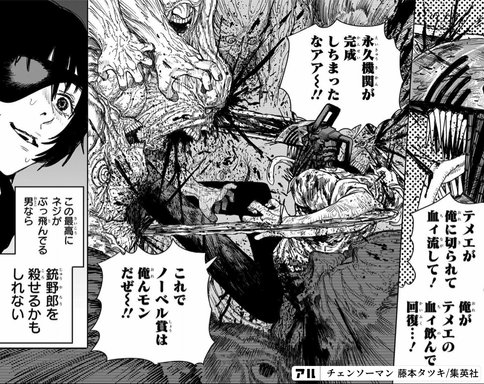
This line, which appeared in the battle against the Eternal Demon, could not have been more descriptive of Denji’s personality. Denji’s craziness is beautifully condensed in this line, and it instilled in the reader Denji’s busted-up humanity.
“Didn’t the old man teach you that? That a beast should not believe the word of the hunter? (Vol. 5, Episode 37)
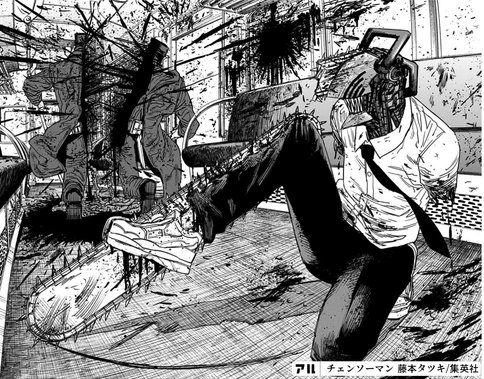
While Samurai Sword is confident of victory, “Didn’t Grandpa teach you when to pull the trigger?”, Denji quotes the words he learned from Kishibe: “A beast should not believe the words of the hunter. It’s a nice scene where he wins the fight the way he learned from his master!
‘It sucks to work hard to have fun and not have fun when you’ve worked so hard to have fun’ (vol. 4, no. 30).
A few words from Denji as he goes through his special training on the shore. Denji says he is not good at thinking, but he gets right to the heart of the matter. It is a phrase that will strike a chord with many readers whose hearts are worn out by labor, and it is a line that you should definitely use when you are tired of working.
I like people who like me” (vol. 5, no. 40)
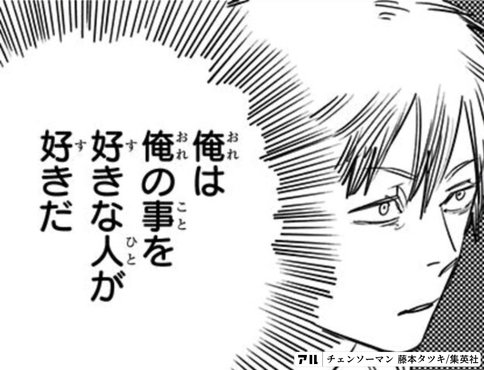
Denji’s words are all about “I guess so. Denji, who has made up his mind to be devoted to Makima, is quickly swayed by Rese’s approach, saying, “I know you like me. I can’t help but laugh at his words, including “Help me, Ms. Makima, I’m going to fall in love with this girl.
Pochita
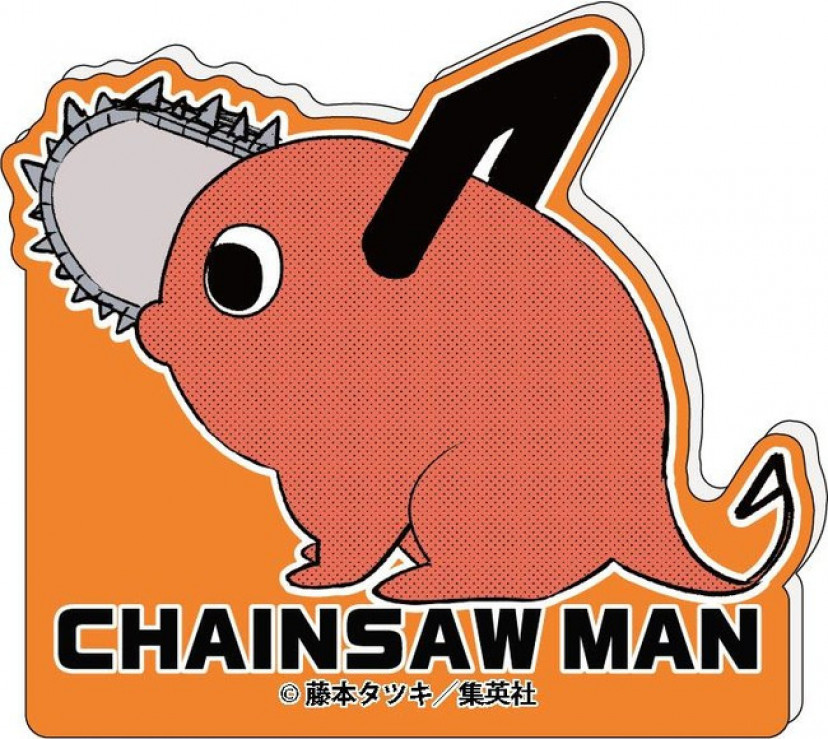
©Tatsuki Fujimoto/Shueisha
Show Me the Dream of the Denji” (vol. 1, no. 1)
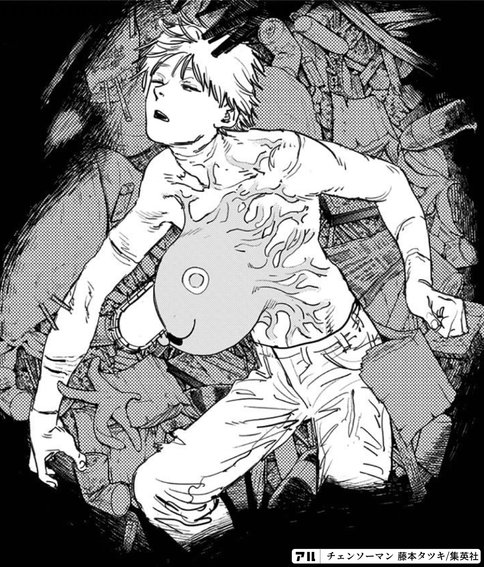
Pochita, who was killed along with Denzi, chooses to become his heart, remembering the dream Denzi once told her. This scene reminds us that the two are deeply connected by a small dream of living and dying normally.
Give him lots of hugs” (Vol. 11, Episode 97)
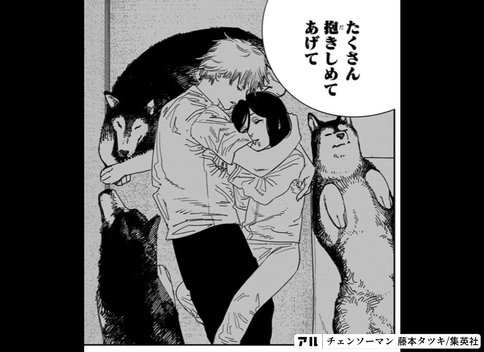
Pochita, who had not been able to fulfill her dream of having someone hug her for many years because she was too strong, must have understood how Makima felt when she sought an equal relationship with others. This is a scene where Pochita’s kind words are touching to the very end.
Makima
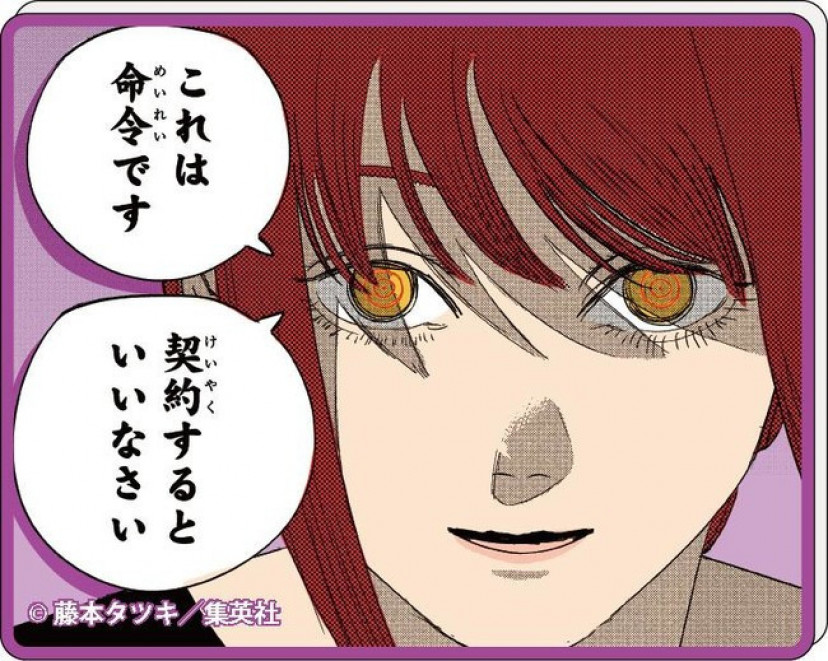
©Tatsuki Fujimoto/Shueisha
I like country rats too” (vol. 6, no. 52)
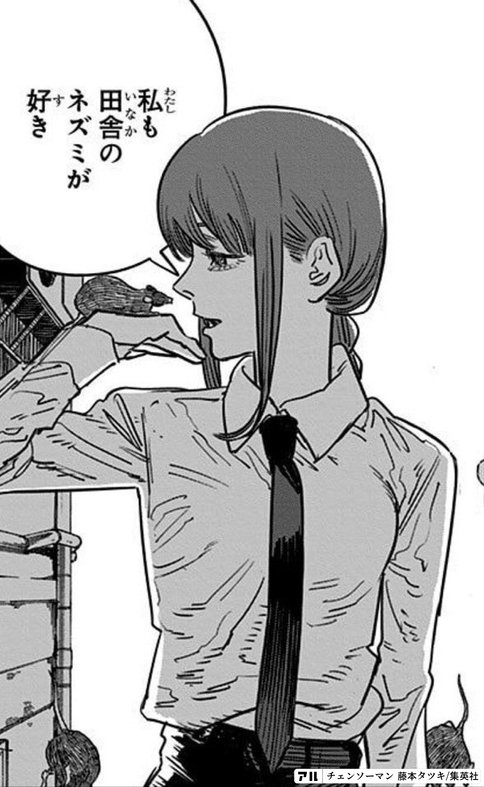
One panel hints at Makima’s abilities, which will be revealed in volume 7. Makima likes rats in the countryside because they can be exterminated by dogs. If you read the book after understanding her true identity, you will be horrified to see that she considers both people and rats equally as objects to be exterminated.
The Corpse is Talking” (vol. 8, no. 70)
Makima dared to use the line that Ping Tsui said in Chinese in volume 7, “The corpse is talking,” and then cut off the head of Kwang Shi, who had beheaded Denji, as well. It was a spine-chilling scene that showed the difference in her character.
If you get in our way, die.”(Vol. 11, Episode 95)
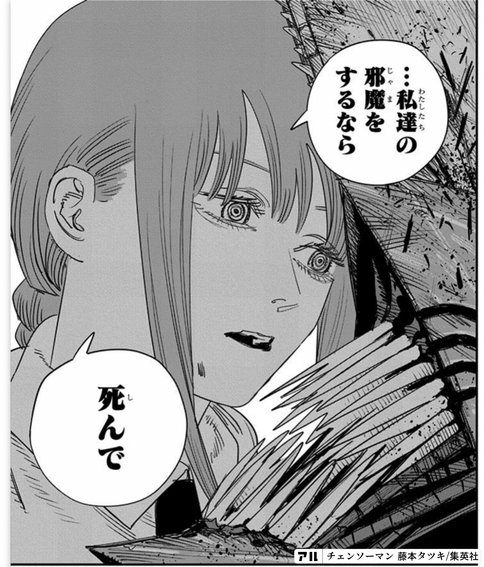
This is the final battle of the first part, the moment when Makima’s chainsaw-man nasty nerdiness reaches its extreme. The scene where he pulls out his heart while paying homage to Denji’s line in episode 1 is traumatic.
Power
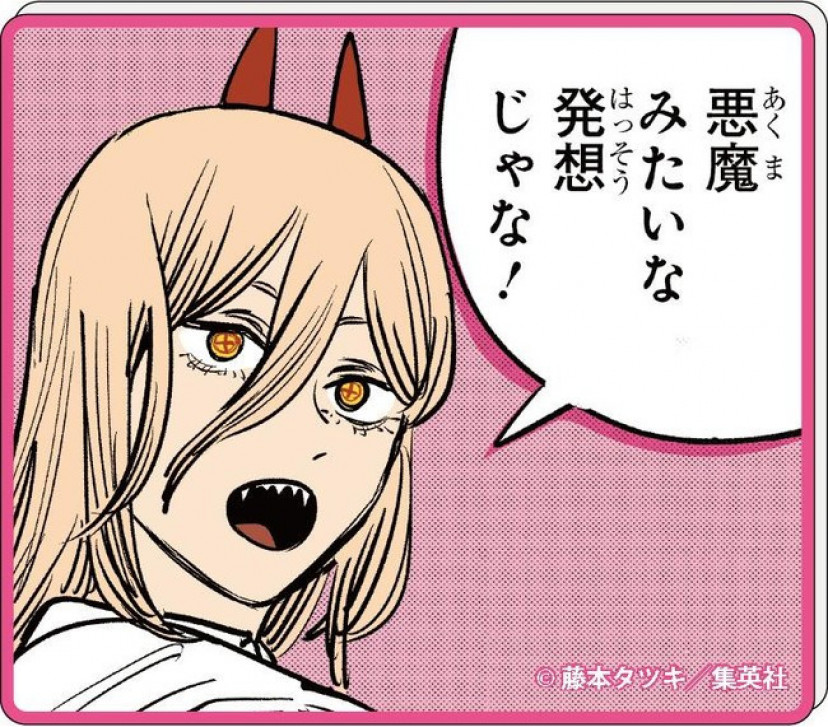
©Tatsuki Fujimoto/Shueisha
Betrayal is one of the most foolish things a man can do…” (Vol. 7, Episode 53)
This is an unusually serious statement by Power, not unlike one frame of the Hayakawa family’s casual daily life. Nevertheless, the “betrayal” here refers to the fact that Nyako misses Denji more than herself, so it is a somewhat heartwarming scene.
Of course! Denji is my buddy!” (Vol. 11, Episode 89)
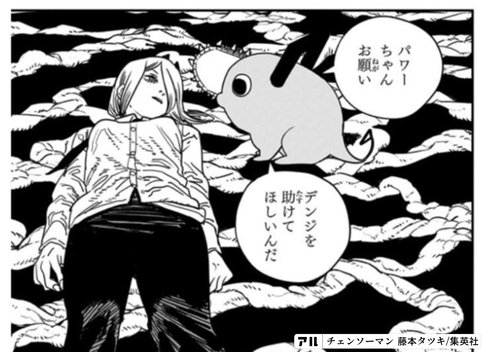
In Denji’s desperate pinch, Power was begged by Pochita to come back to life. It is very moving to think of the two who were not on the best of terms at the beginning of the manga. In a manga where the main characters die one after another, Power’s resurrection is a comforting sight.
Come and Find Me” (Vol. 11, No. 91)
This is the message that Power, who fought through for Denji, his first friend, left to Denji at the end of his life. The scene is in the same dumpster as when Pochita and Denji made a contract at the beginning of the film, so we are waiting for Power-chan’s revival in the second part of the film.
Aki
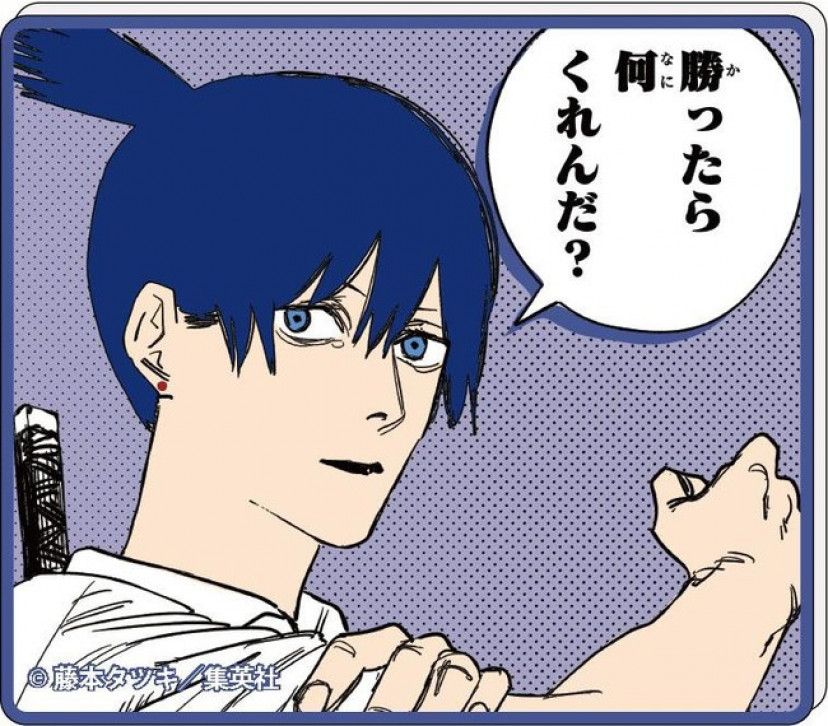
© Tatsuki Fujimoto / Shueisha, MAPPA
You just shut up and watch, and come back for a laugh when I lose and die.”(Vol. 4, No. 33)
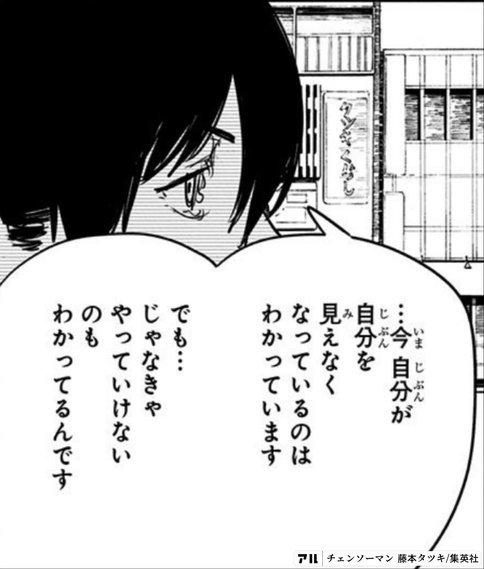
When Kurose, a public safety devil hunter in Kyoto, tells Aki that at this rate he will never be able to beat the gun demon, Aki replies, “I’ll never be able to beat him. It is an honest and core line from one of the most sensible people in the series! It is a line that sticks in the mind of those who have unyielding beliefs.
It’s a requiem from us to you” (vol. 5, no. 38)
The requiem for Buddy HIMENO, who died in the line of duty, is the scream of the samurai sword. Aki’s joyful expression as she participates in the ball-kicking contest is conversely somewhat sad, and it is a scene that makes me not quite sure whether to laugh or cry.
I wanted to play catch” (vol. 9, no. 78)
In a change from the heartwarming Hayakawa family, Aki unexpectedly meets his end. She wanted to play catch with her brother instead of having snowball fights where they hit each other. Denji’s first tears are a surprise, but this scene, in which he meets a cruel end, is impossible to read without tears.
Kobeni
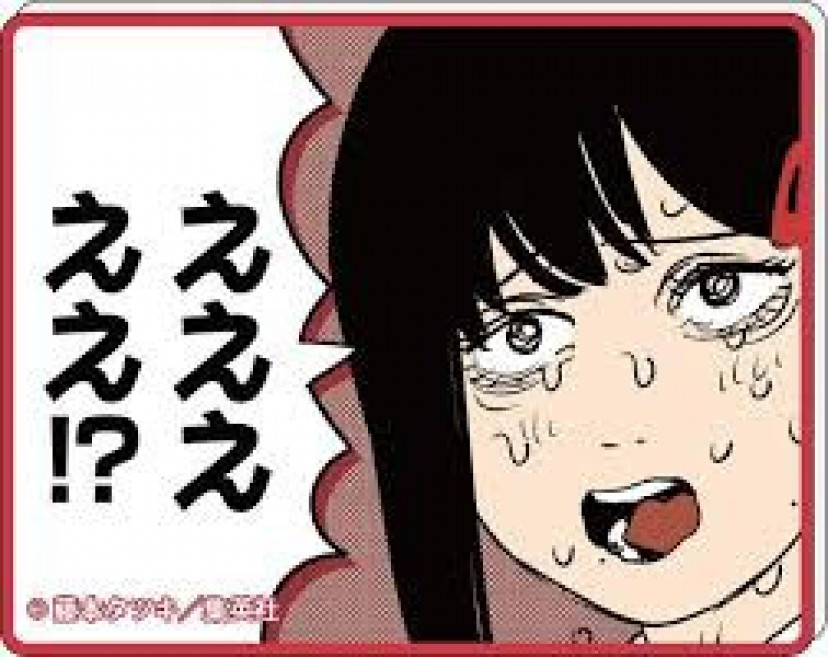
© Tatsuki Fujimoto / Shueisha, MAPPA
“…… I’ll be getting my bonus soon…”(Volume 5, Episode 35)
The bonus was the reason Cobeni stayed with Public Safety even though he was scared to death. Bonuses are important. …… This scene is a reminder that you still have to be somewhat crazy to make it as a devil hunter.
Himeno
Aki kun wa nai nai nai nai” (vol. 2, no. 14)
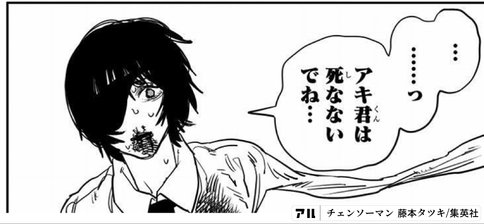
This is a habit of HIMENO’s that appears many times, including in recollections. The true meaning of this line is “When I…die…I want you to cry. Aki, who is able to cry for others, wants people to cry for her. This line is filled with such a sad wish.
Easy revenge!” (Volume 5, Episode 35)
HIMENO gave everything to Ghost in order to save Aki. As if to convey her legacy, Ghost, who was supposed to be her enemy, gave Aki the one cigarette that was once taken away from Aki by Himeno. All the elements are too fashionable.
Kishibe
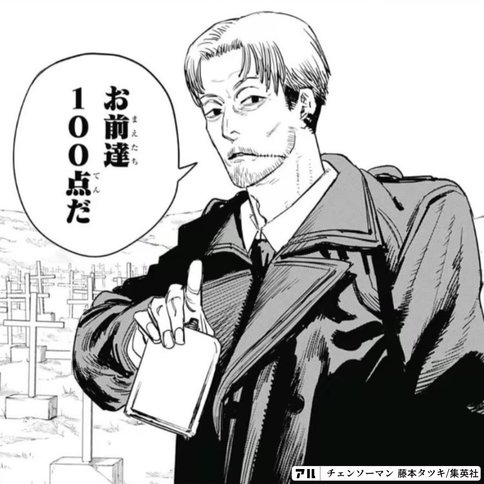
I’ll make you the coolest guys ever.”(Vol. 4, No. 30)
Training scene by Mr. Kishibe. Kishibe, who has a theory that the crazier the job is, the more crazy people can survive, trains the two crazies in a crazy way to make them into “crazy people. This is a glimpse into the dark side of this job.
I don’t want to see anything…” (Vol. 8, Episode 70)
It is so painful one word that Kishibe releases when he realizes that the woman he has loved for many years was easily killed by Makima. This one sentence gives a sense of deep sadness. It is a quote that is also versatile enough to be used in times of great shock.
Angel Devil
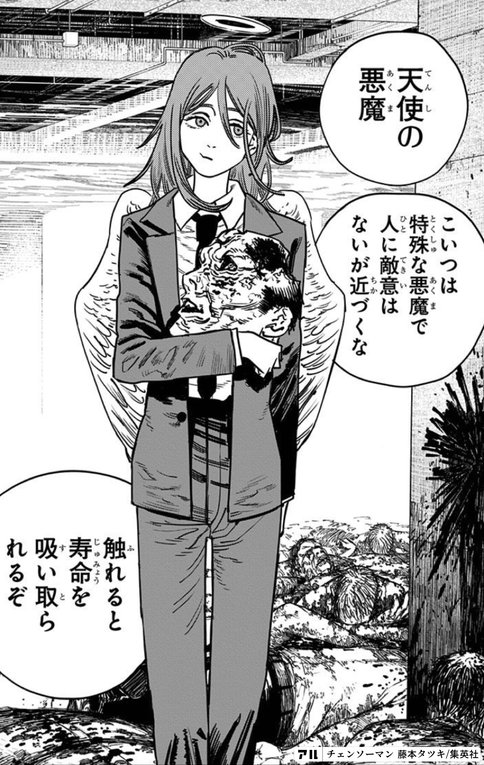
I’m a demon before I’m an angel. I think human beings should suffer and die” (vol. 5, no. 41)
When asked by Aki to intercede for a dying human, the angelic demon refused. This line makes us realize that even angels are demons, but when we learn about his past, which is later revealed, we can feel the angelic compassion behind his words.
Reze
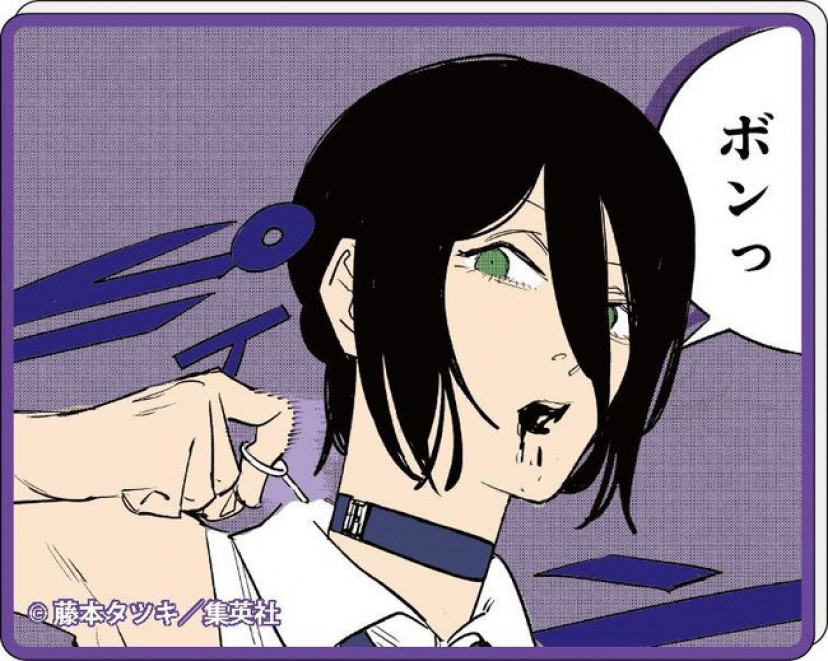
© Tatsuki Fujimoto / Shueisha, MAPPA
“Would you rather be a country mouse or a city mouse?” (Volume 5, Episode 42)
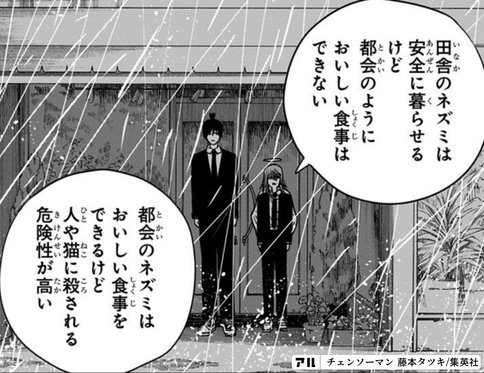
During an evening date at school, Reze brings up Aesop’s Fable to Denzi and asks her a question. It is a fable that includes the teaching that what makes people happy is different for each person, with Reze being a country person and Denji being an urban person. This conversation is also a foreshadowing of Makima’s ability.
Kwangsi.
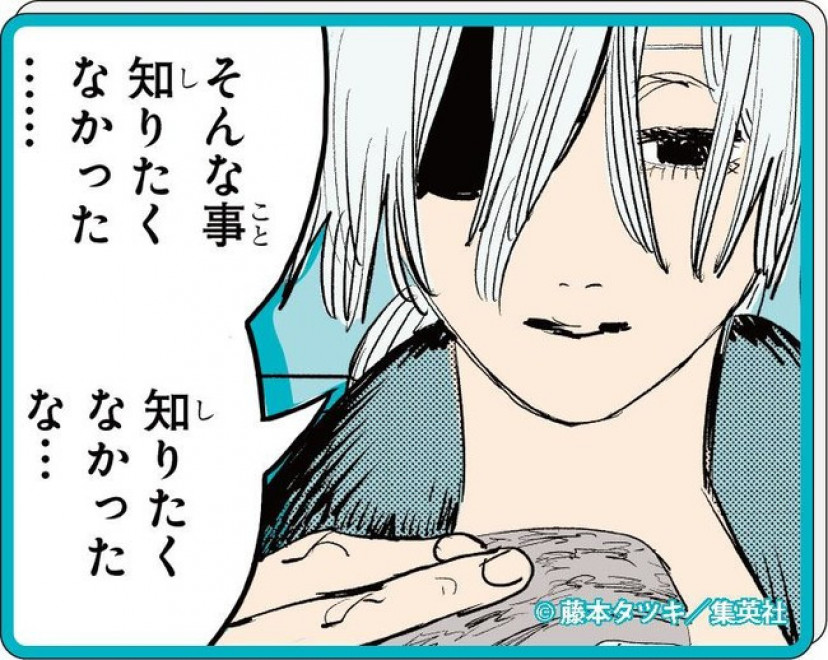
©Tatsuki Fujimoto/Shueisha
The secret to living happily in this world is to live in ignorance and stupidity” (vol. 7, no. 61)
The negotiation scene between Kwangsi and Kishibe. These words spoken by those who have known too much have a different weight. If you can live happily without knowing, that may be a good thing. These are words of wisdom to turn to when you are troubled about how to live.
Hirofumi Yoshida
We have final exams coming up soon.” (Vol. 8, No. 67)
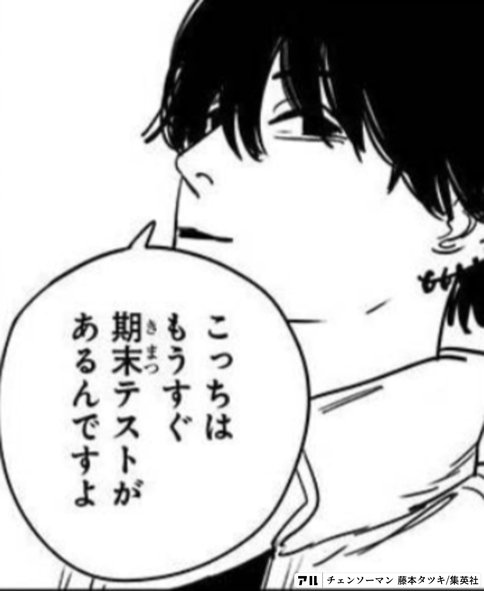
A conversation scene with Kishibe in which the handsome private devil hunter who suddenly appears turns out to be a high school student. It is also a line that is easy for students to use on a daily basis. It is also a line that could be used when you want to show that you are busy.
Santa Claus
And the secret ingredient is guilt” (vol. 8, no. 63)
The real Santa Claus teaches his apprentice the trick to turning humans into exquisite dolls. She says that she puts in the respect, adoration, and pity that only human beings have, and a hidden flavor of guilt. It is a simple but essential line.
Chainsaw Man – Strange Words, Strange Scenes!
Tatsuki Fujimoto’s works are full of punchy dialogue. The “Chainsaw Man” is no exception to this rule, producing a number of stray words. Let’s take a look back at some of the most memorable scenes and lines.
Puke!!!!!!!!” (Volume 3, Episode 21)
It’s a boys’ magazine, but a vomit-tasting first kiss that steals a boy’s dreams. At a drinking party, a drunken HIMENO goes out of control. Thinking he is going to take Denji’s lips, he inadvertently makes a coarse mistake. The vividness of the picture is amazing. It is a traumatic lost scene.
“The future, the highest, the future! The highest! Future!!! Supreme!!!” (4 volumes and 31 scenes)
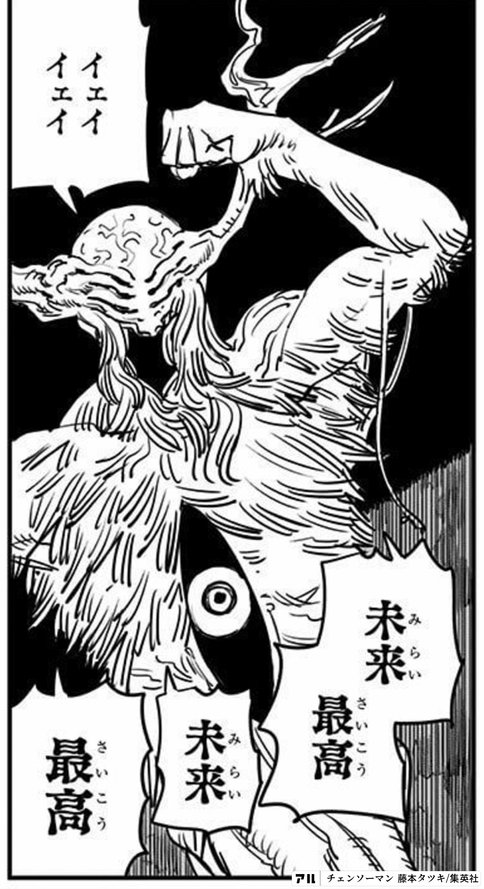
The future demon is very excited about Aki’s so dismal future. He pauses in high tension and exclaims, “The future is the best!” he exclaims. It is an easy-to-use line, and a number of fans called out “Future Supreme” when the second part and the anime adaptation were decided.
Until I die, all I can think about is Halloween” (vol. 8, no. 70).
This line describes the abilities of Cosmo (a space demon), one of Quansi’s mistresses. It is also popular as a chensoman syntax that can be used when you are preoccupied with something. It is also recommended to call out “Halloween!” as if you were out of your mind. as if you were out of your mind.
Makima-san tastes like this…” (Vol. 11, Episode 96)
This is a line from Denji, who tastes Makima directly, not metaphorically. Who could have predicted this outcome when the battle with Makima began? The Makima set meal, depicted with an unusually realistic touch, is sure to give you heartburn.
And some quotes from the second part of The Chainsaw Man!
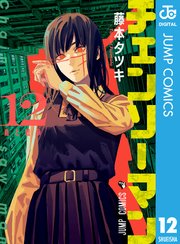
The second part, “School Arc,” is set at Daiyon Higashi High School, and the story is currently unfolding with Asa Mitaka as the main character. Part 2 is characterized by many thought-provoking psychological scenes, as the main focus is on high school students in the throes of puberty. Although we are still in the early stages of Part 2, here are a few quotes. Why don’t you read the story that will continue in the future while looking for your own personal quotes?
Mitaka Asa
I see, I…was jealous of everyone.”(Vol. 12, Episode 98)
Isolated in class, Asa asks his classmate Cockapoo, a chicken demon, to call him by name. He then realizes that he is the cause of his isolation. It is an impactful scene, including the tragedy that follows.
Yol ( War Devils)
Tanaka Spinal Sword” (vol. 12, no. 98)
These are the words Yol uttered when he confronted the demon of justice who had contracted with the committee chairman. A stray sword created by Asa’s homeroom teacher, Tanaka Sensei. The original is the Tanaka Sword from “Bobo Bobo Bobo”. The sound effect was also “Bobo Bobo ……”.
Yuko
‘The outcome may be wrong… but as long as my feelings aren’t wrong, it’s fine with me!’ (Vol. 12, Episode 102)
These are the words of Yuko when Asa asked her to justify her choice. These words were a relief to Asa, who had been trapped in self-doubt, wondering if he had made the wrong choice. Regardless of the outcome, they remind us to cherish our feelings.
A Treasure Trove of Quotes in “The Censorman,” Revealing Human Greed! Expectations for the second part are high!
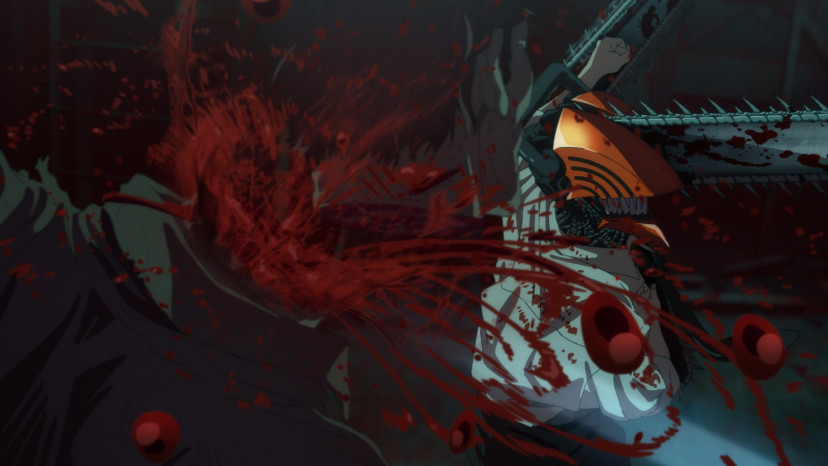
© Tatsuki Fujimoto / Shueisha, MAPPA
We have introduced the quotes and quibbles of “The Chainsaw Man. The charm of this work is that it is created with a unique sensibility and has a wide range of quotes, from profound quotes to lost scenes that have a strong impact. As the second part of the series progresses, it is likely that some of these lines will be foreshadowed. You may be surprised to find out that line was foreshadowed as the second part of the film progresses. Let’s enjoy the unpredictable world of “Chainsaw Man” as we search for quotes that stick with us and consider the foreshadowing!
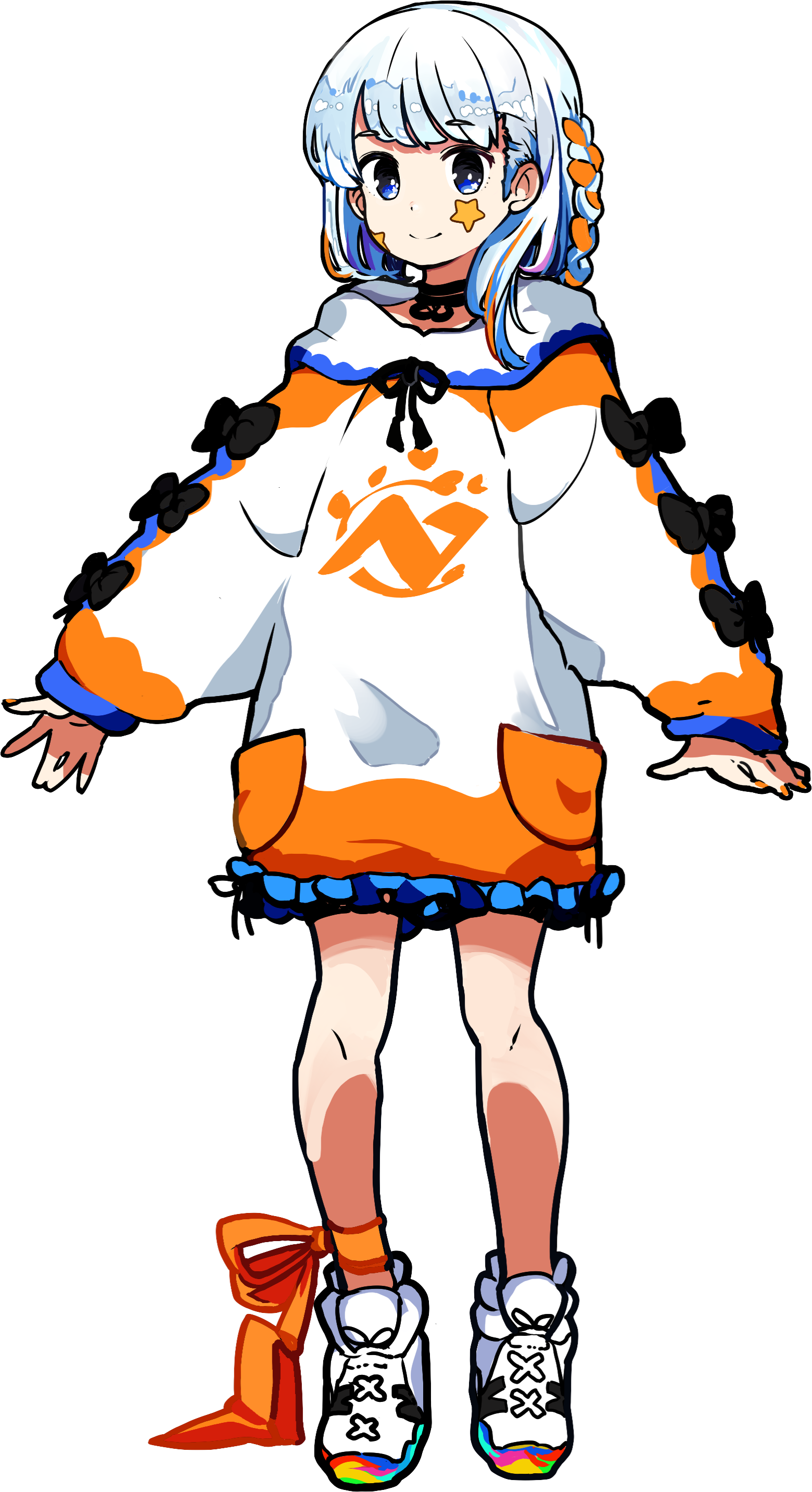



No Comments